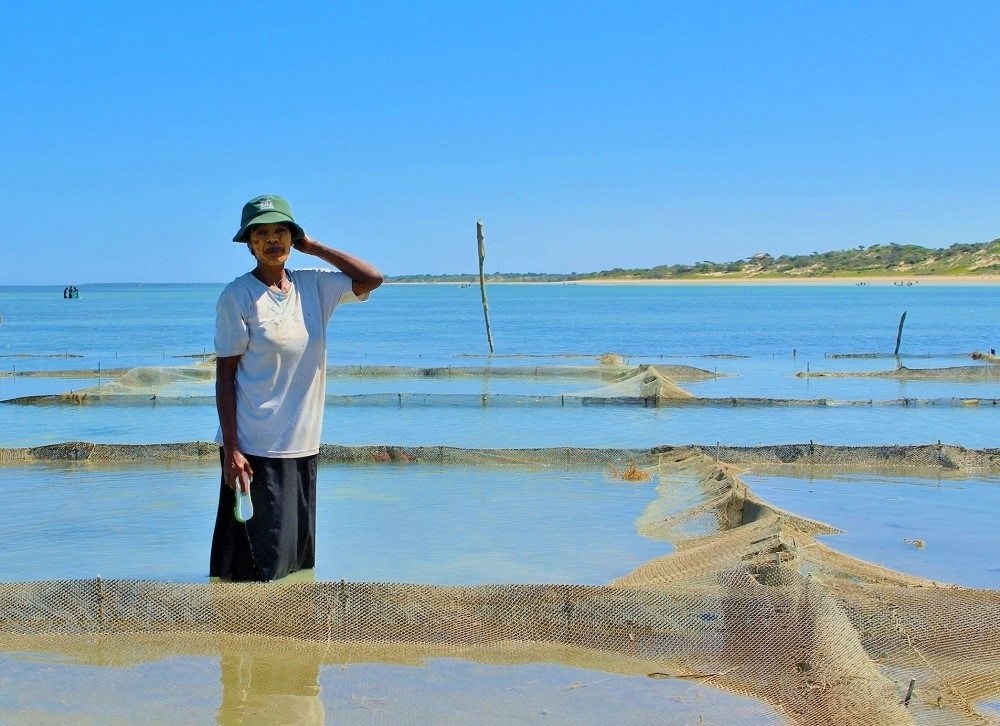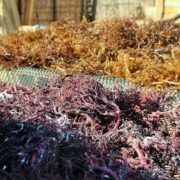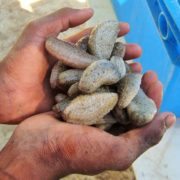We transition fishing communities and turtle hunters towards seaweed and sea cucumber farming to relieve pressure on natural marine resources and a provide a pathway out of poverty
At Reef Doctor, we believe in empowering rural communities by encouraging resource stewardship rather than resource consumption. Following this principle, in April 2014 we were awarded a prestigious 3-year Darwin Initiative grant to assist local communities in their transition towards sustainable marine-based livelihoods. This is achieved through the implementation of a bay-wide seaweed and sea cucumber aquaculture project, providing a direct pathway to poverty alleviation.
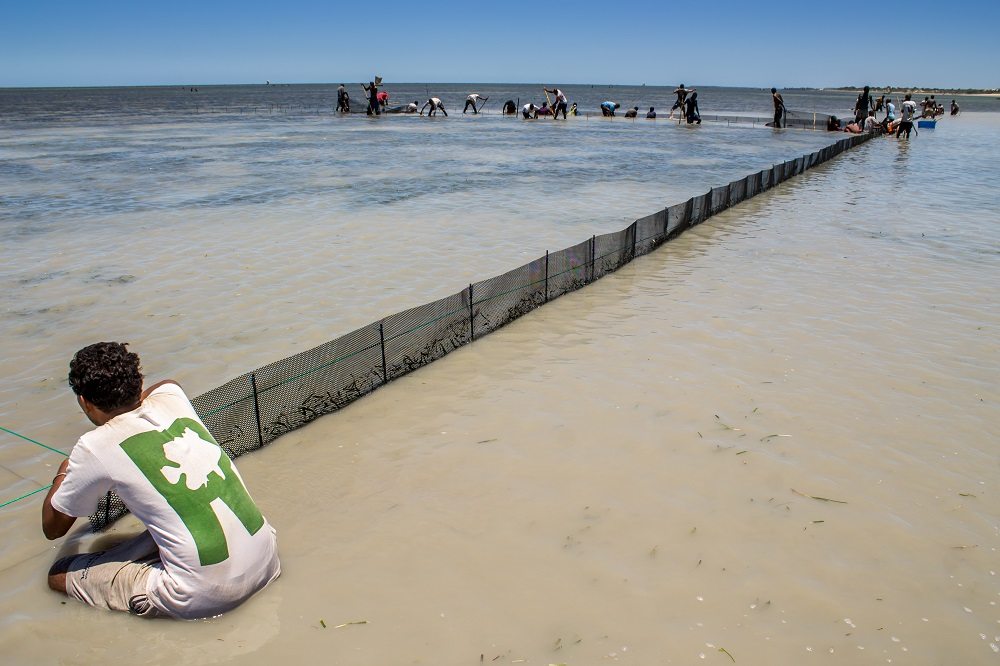
In the Bay of Ranobe, degraded marine habitats and concentrated fishing pressure mean that fewer and fewer coastal inhabitants can make a living from the ocean. Extreme poverty and a lack of alternative livelihoods have led to a scramble for marine resources. Dwindling fish catches, illegal turtle hunting and the obliteration of coral reefs from destructive fishing practices further reduce fisheries, increase poverty and competition, and leave little incentive for sustainable fisheries management. In response to this growing crisis, our aquaculture project offers communities that are reliant on the exploitation of marine resources an alternative and sustainable livelihood. To date:
![]() Sea cucumber and seaweed farming as sustainable livelihood options have been developed in nine villages, involving over 300 families.
Sea cucumber and seaweed farming as sustainable livelihood options have been developed in nine villages, involving over 300 families.
![]() In just one year, aquaculture activities generated over $24,000 USD.
In just one year, aquaculture activities generated over $24,000 USD.
The reduced economic incentive to hunt marine turtles has saved over 1,000 juveniles in two and a half years.![]()
We provide fishing families with training, information, set-up materials, access to markets and ongoing support to establish community owned and operated seaweed and sea cucumber farms. These aquaculture activities diversify income streams and relieve pressure on over-exploited fisheries and turtles, while respecting the cultural importance of the oceans to coastal communities.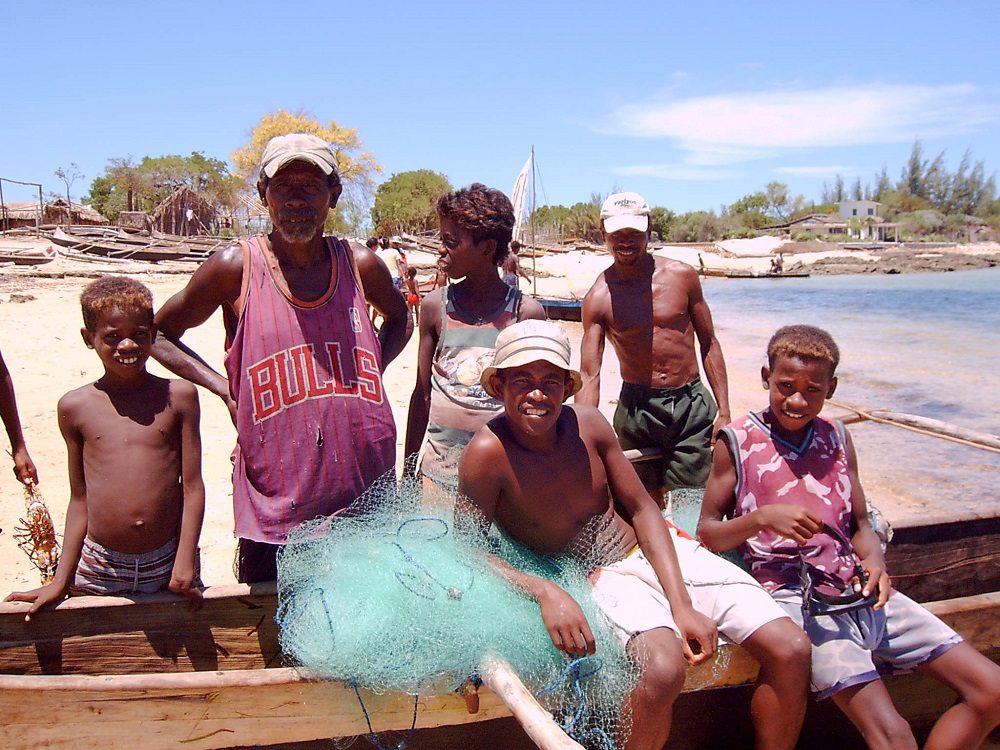
We train aquaculture technicians to establish farms in new villages, passing on their expertise across the region, while earning additional income. This developmental approach allows skills and information to grow within the community, enhancing the capacity and resilience of vulnerable populations. Equipped with solid skills and knowledge, communities can independently achieve continued economic growth and sustainable use of marine resources, even after the project’s conclusion. The reliable income that seaweed and sea cucumber farming generate is helping to relieve the daily burden of living in poverty experienced by these rural communities, while reducing the economic imperative to fish and hunt turtles.
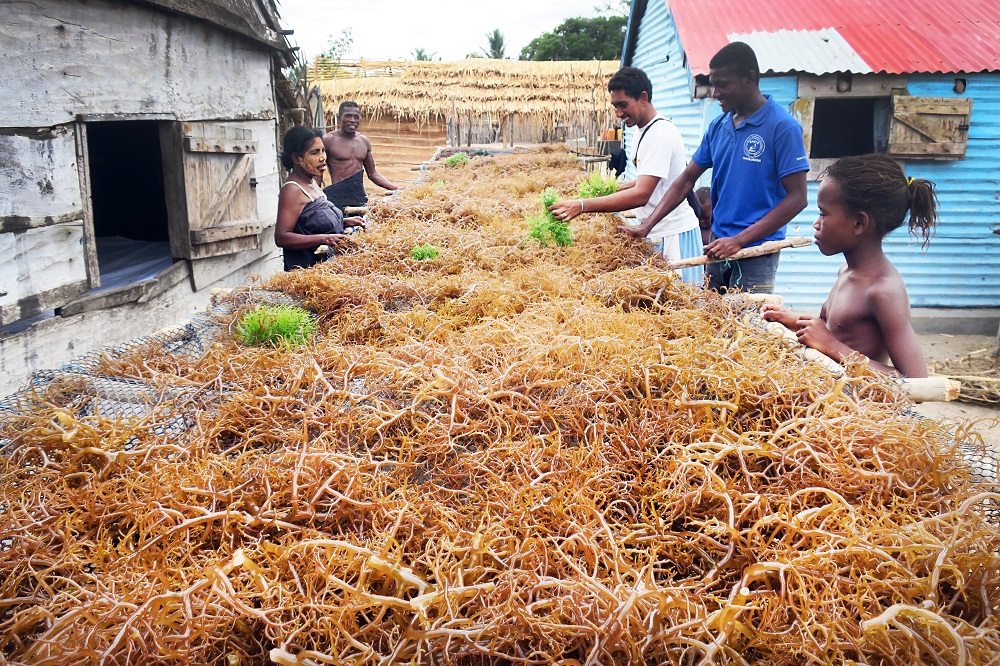
This programme is the single greatest conservation and poverty alleviation investment in the Bay of Ranobe in recorded history. It seeks to become a working model and platform for marine conservation, sustainable marine-based livelihoods, and poverty alleviation throughout the Western Indian Ocean that will contribute to on-going regional conservation efforts and global sustainability. Furthermore, it makes considerable leaps forward in the empowerment of marginalised women by encouraging their participation in aquaculture activities and providing new livelihood training.
Due to the huge success of these activities and high levels of community interest and support, we are now expanding this programme throughout the region in partnership with the Madagascar Ministry of Fisheries and Marine Resources (Ministère de la Pêche et des Ressources Halieutiques; MRHP), COPEFRITO, IOT, and the Madagascar Regional Foundation for Agriculture Development (Fonds Régional du Développement Agricole; FRDA, Ocean Farmers, and the World Bank.
